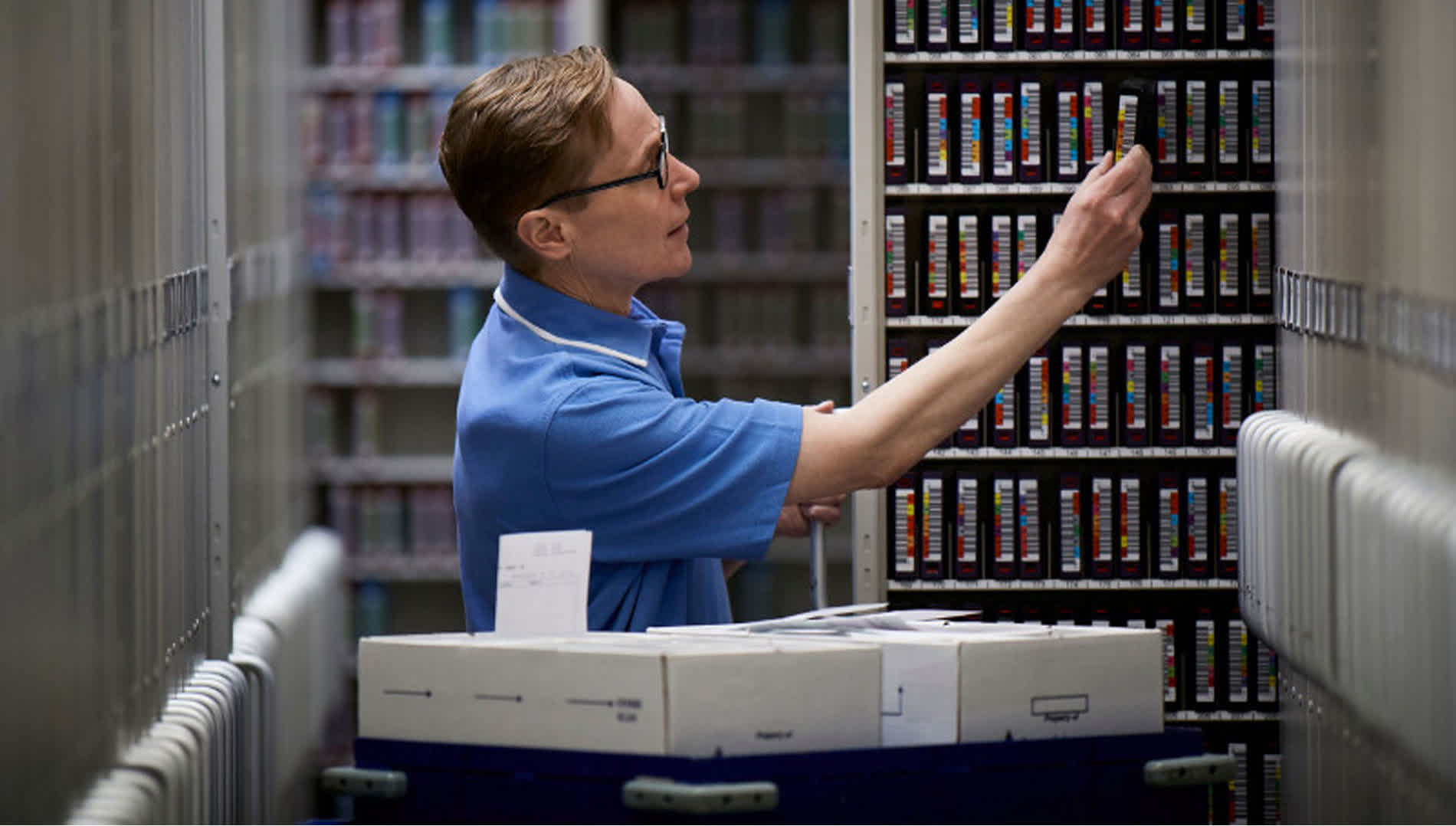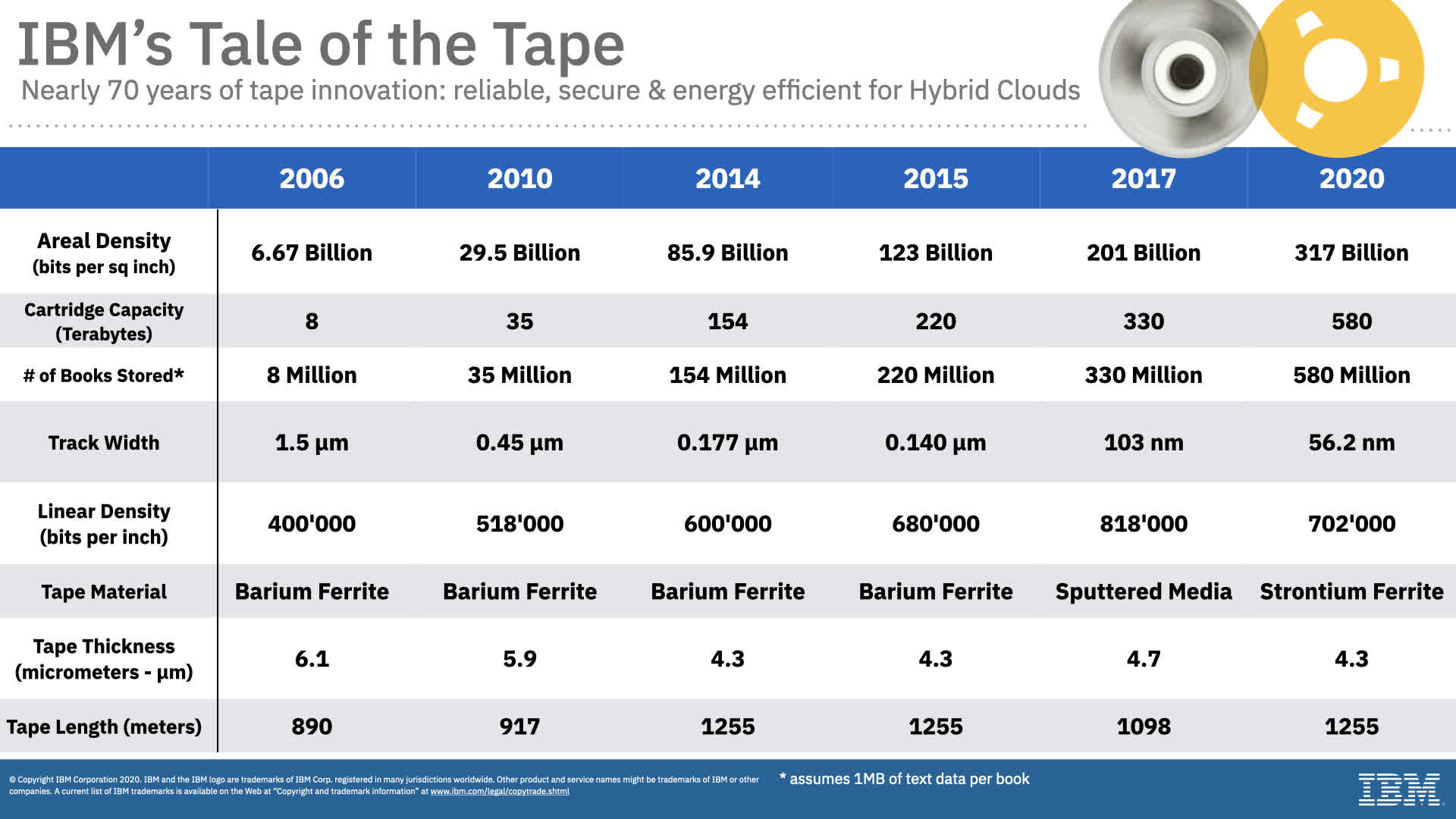Why it matters: Magnetic tapes continue to be a formidable storage solution for data archival and backup, enabling organizations and large-scale businesses to hold onto vast amounts of data for decades. It's why this antiquated technology is still of interest to companies like IBM and Fujifilm, who've jointly developed a new type of magnetic tape that allows for an areal density of 317 gigabits per square inch. The result is a single cartridge that can hold 580TB of data on 1,255 meters of tape.

Combine the importance of preserving huge amounts of critical data with an exponential growth rate, and it becomes understandable why a storage technology as old as the magnetic tape is still seeing advancements today. The medium's latest breakthrough comes from a partnership between IBM and Fujifilm for work on a Strontium Ferrite (SrFe) prototype tape that's said to deliver a ~27x increase in areal density and ~50x increase in capacity over existing LTO-8 tapes.
Alongside the new high-density material developed by Fujifilm, the tape also uses IBM's servo and signal processing technology and uses a low-friction head that can read/write on a much narrower track (56.2nm wide compared to 103nm in a demo three years ago) with a record-setting accuracy of 3.2 nanometers.
IBM last worked with Sony in 2017 for developing high-density sputtered tapes
IBM notes that this new milestone will enable tape drives to handle the massive growth of digital data, which is expected to hit 175 zettabytes globally by 2025 (1 ZB = 1 trillion GBs). Denser tape drives are also likely to find increased application in 'hyperscale' data centers, over 500 of which currently store about 547 exabytes of actual data.
"Hybrid clouds will rely on magnetic tape for decades to come," says IBM Researcher Dr. Mark Lantz, estimating that over 345,000 exabytes of data currently resides in tape storage systems that continue to excel in providing scalable, cost-effective, and secure ways for data archival.
Top Image Credit: Iron Mountain
https://www.techspot.com/news/88024-ibm-fujifilm-new-magnetic-tape-can-store-580tb.html
